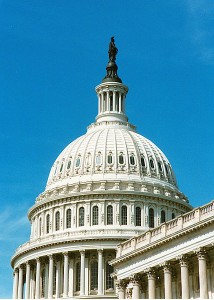On The Hill: More Special Benefits for Religion

In early March the American Humanist Association sent out an action alert to its members urging them to contact their Representative and Senators and ask that they oppose the Equitable Access to Care and Health (EACH) Act, which would allow anyone with sincerely held religious beliefs to be exempt from the mandate in the Affordable Care Act to buy health insurance. The bill has now passed the House with bipartisan support after receiving a special exemption from going through committee and being fast-tracked to the House floor, and it now awaits passage in the Senate before it can move on to the president for his approval or veto.
The EACH Act is problematic for several reasons, the first of which is that it fundamentally weakens the health care law colloquially known as Obamacare by decreasing the number of people who buy health insurance, which in turn raises the average premium paid by those who have insurance. Secondly, the EACH Act gives religious Americans a specific benefit, that of not being fined via the individual mandate for not purchasing health insurance, that secular and non-religious Americans cannot enjoy simply because they are not religious. Thirdly, the EACH act threatens the health of children by allowing their parents not to purchase insurance for their family, which means that kids across the country might not get vital medicine or medical procedures they need until it is too late.
This isn’t the first religious exemption to be included in the health care law. As Sam Grover of the Freedom From Religion Foundation rightly points out, this exemption would supplement the two religious exemptions in the health care law that already exist.
This bill is being pushed by members of the religious right who simply don’t want to buy health insurance, including people whose religious beliefs tell them that some medical practices cannot be used on their children—even when their life is in danger. The fact that this exemption applies to having to buy any form of insurance, even if the individual only opposes a few medical practices and not modern medicine in its entirety, is concerning. Adults that have medical insurance should be able to deny themselves certain medical treatments if their religious beliefs require them to do so, but they should not be given the power to stop their children from receiving insurance and lifesaving medical procedures or be given an exemption from buying insurance for themselves.
The healthcare law might still be unpopular in some segments of the country and with various religious communities, but it is the law of the land. Americans should attempt to abide by it instead of trying to pass exemptions that only a few Americans can enjoy. Members of Congress must recognize that giving religious Americans special privileges when it comes to purchasing health insurance serves only to decrease the number of Americans that can afford healthcare while alienating an entire community simply because of their lack of religious beliefs.
